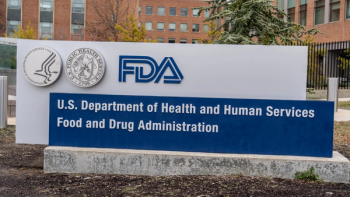
Sanofi's Aubagio to Square Off Against MS Injectables
The most obvious competitors for Sanofi’s Aubagio, the second oral multiple sclerosis (MS) drug to receive FDA approval, would appear to be Novartis’ Gilenya.
The most obvious competitors for Sanofi’s Aubagio, the second oral multiple sclerosis (MS) drug to receive FDA approval, would appear to be Novartis’ Gilenya, and Biogen Idec’s hotly anticipated BG-12, which has a PDUFA date scheduled for December 28.
Both Gilenya and BG-12 are administered orally as opposed to injected, but execs at Genzyme – which was acquired by Sanofi for just over $20 billion in February 2011 – said they’re going after the “platform” injectable therapies, including Biogen Idec’s Avonex, Bayer’s Beta Serone, Teva’s Copaxone, EMD Serono/Pfizer’s Rebif and Novartis’ Extavia.
Bill Sibold, head of Genzyme’s MS business unit, described the $12.5 billion MS market as having two distinct segments: the platform therapies, which are the injectables, and the higher efficacy segment. With the platform therapies, “the efficacy appears to be similar to what we’re seeing with Aubagio.” What distinguishes Aubagio, according to Sibold, is the drug’s ability to slow progression of disability. In MS, the Expanded Disability Status Scale (EDSS) is used to quantify the accumulation of physical disability, and both Sibold and Mike Panzara, therapeutic area head, MS and immune diseases, touted Aubagio’s scores versus the other platform therapies. “We have two studies [TEMSO and TOWER] confirming significant effect on disability progression,” said Panzara.
Panzara also emphasized the fact that Aubagio’s safety profile is “well-understood,” the implication being that Gilenya’s safety profile and side effects are less so, and thus less predictable. Aubagio carries a black box warning on the label, FDA’s harshest safety precaution. Gilenya does not have a black box warning, but regulators in Europe and the US issued
Sibold and Panzara declined to speculate on Aubagio’s potential sales or market share a year from now, or what the approval of BG-12 might mean for the brand. Interestingly, both Sibold and Panzara formerly worked at Biogen Idec, and according to Sibold, both “worked very significantly on BG-12, so we certainly know [about] it…but until you’re on the market, you’re not a competitor, and really our opportunity is the over 80% of patients that are on injectable therapies.”
In a note to investors this morning, Seamus Fernandez, an analyst at Leerink Swann, wrote that expectations are modest for the drug’s performance, “due to clinician feedback on expected label restrictions and side effects (notably hair loss),” and that certain key opinion leaders “have consistently questioned Aubagio’s appeal within the MS community’s large population of women of childbearing age.” Fernandez put Aubagio’s sales at $278 million in 2020, but qualified that figure. “Given continued upper-single-digit MS market growth with strong price increases, we believe our forecasts are very conservative, given Sanofi’s global reach and Genzyme’s highly personalized patient service model.” Despite potential hair loss and teratogenicity (birth defect) risks – both of which are key limitations for new MS patients, Fernandez noted, the drug is “extremely well tolerated with predictable safety risks versus Gilenya or Tysabri,” and is also dosed once-daily as compared to BG-12, which will likely be administered two or three times daily.
As has been noted elsewhere, Aubagio is priced to move. At $45K per year, the price comes in below Copaxone and Avonex, and substantially below Gilenya. Sibold, Panzara, Fernandez, and many news reports today stated that Gilenya is 28% more expensive than Aubagio. Duane Reade in New York City, however, quoted a price of $55,200 for a year’s supply of Gilenya, a 22% premium over Aubagio.
Sibold declined to give a specific headcount for the Aubagio sales force, but said it’s “fair to characterize it as being competitive with the other companies and products” in the category. Sanofi/Genzyme hopes to arm its reps with the monoclonal antibody
Newsletter
Lead with insight with the Pharmaceutical Executive newsletter, featuring strategic analysis, leadership trends, and market intelligence for biopharma decision-makers.



